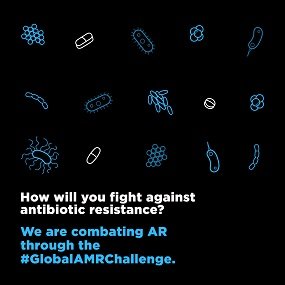Henry Ford Joins Global Fight against Antibiotic Resistance

DETROIT – Henry Ford Health System announced today it is joining more than 100 organizations worldwide to participate in a campaign to combat the growing threat of antibiotic resistance (AR).
For its part in the AMR Challenge, Henry Ford pledges to make commitments and take actions in five key areas of AR, which many health experts consider one of the greatest global public health threats:
- Improving antibiotic use in hospitals and outpatient settings.
- Reducing antibiotics and resistance in the environment and food animals.
- Developing new vaccines, drugs and diagnostic tests.
- Innovation and improvements in infection prevention and control.
- Enhancing data sharing and collection.
“This campaign builds on initiatives we, as a health system, have implemented over the years including work in infection prevention and control, antibiotic stewardship, pharmacy and microbiology to fight antibiotic resistance across all of our patient care areas in southeast Michigan,” says Katherine Reyes, M.D., MPH, medical director of Infection Prevention and Control and an infectious diseases physician at Henry Ford.
“To further the progress against antibiotic resistance, it will take the collective efforts of all these organizations. We pledge to do our part with a robust, achievable action plan.”
The one-year AMR Challenge is led by the U.S. Department of Health & Human Services and Centers for Disease Control and Prevention. Henry Ford is one of three Michigan health systems among the more than 100 organizations participating. Other participants are from government, pharmaceuticals, health insurance and food animal producers. Each organization pledges to develop and implement an action plan.
Henry Ford’s commitment targets these areas:
- Improving Antibiotic Use. In 2014, Henry Ford launched an antimicrobial stewardship program to reduce antibiotic use, improve patient safety and outcomes and reduce costs. Pilot projects have focused on reducing unnecessary urine cultures and antimicrobial therapy. Coming this fall, a “shorter is better” pilot that calls for a shorter duration of antibiotic therapy for certain bacterial infections.
- Improving infection prevention and control. A leader in reducing health care associated infections, Henry Ford will continue its process improvements and education to reduce MRSA, c.Diff, central-line bloodstream and catheter-associated urinary tract infections.Patients who visit urgent care for an upper respiratory illness will receive a wellness back with information about the use of antibiotics.
- Reducing antibiotics in the environment. Henry Ford will extend its safe disposal of medicines to additional pharmacy locations.
Henry Ford’s commitment also extends to multiple other countries under their Global Health Initiative including Nepal, India, Micronesia, Haiti, Philippines, Malawi and nine countries in South America. The GHI comprises collaborations with the World Health Organization, Detroit’s Department of Health and Wellness, Michigan Department of Health and Human Services, Oakland University, University of Michigan and Wayne State University, and seeks to address health care issues facing underserved populations.
###
MEDIA CONTACT: David Olejarz / David.Olejarz@hfhs.org / 313.874.4094
.svg?iar=0&hash=F6049510E33E4E6D8196C26CCC0A64A4)

/hfh-logo-main--white.svg?iar=0&hash=ED491CBFADFB7670FAE94559C98D7798)









